You may have heard about the messy, chaotic and truly horrible presidential election of 1876, pitting Democrat Samuel Tilden and Republican Rutherford B Hayes. But did you know that New York City plays a huge role in this moment in American history?
Tilden, the governor of New York, was a political superstar, a reformer famous for taking down Boss Tweed and the corrupt machinations of Tammany Hall. From his home in Gramercy Park, the extremely wealthy governor could kept himself updated on the election by a personal telegraph line.
In a way, the presidential election came to him — or at least to his neighborhood. The Democratic national headquarters sat only a few blocks south, while the Republican national headquarters made the Fifth Avenue Hotel (off Madison Square) its home.
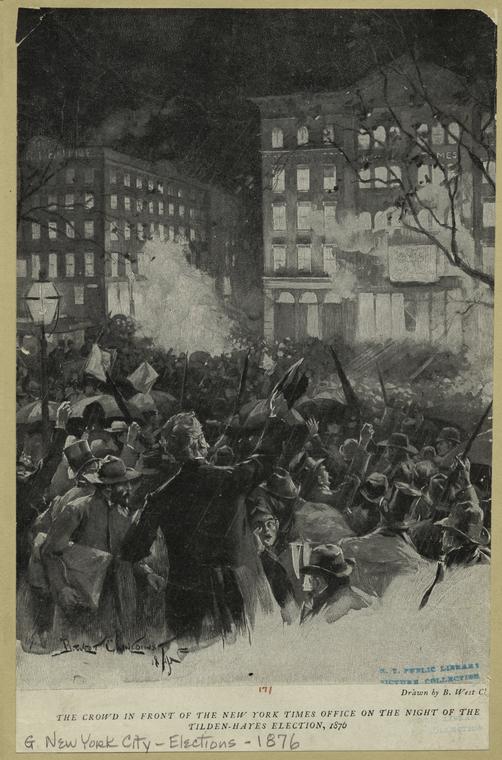
All this would have made the 1876 national election somewhat unusual already — New York City seemed to be at the center of it — but the strange series of events spawned by a most contentious Election Day would send the entire country into pandemonium.
Not only was democracy itself on the line, but the fate of Reconstruction was also at stake. As were the rights of thousands of Black Southerners.
How did shadowy events which occurred at the Fifth Avenue Hotel in the early morning hours of November 8, 1876, change the course of American history? How did a flurry of telegrams and months of political chicanery cause an end to the country’s post-Civil War ambitions?
FEATURING: A visit to Tilden’s mansion on Gramercy Park, now the home of the National Arts Club!
Listen now: Samuel Tilden and the Presidential Election of 1876
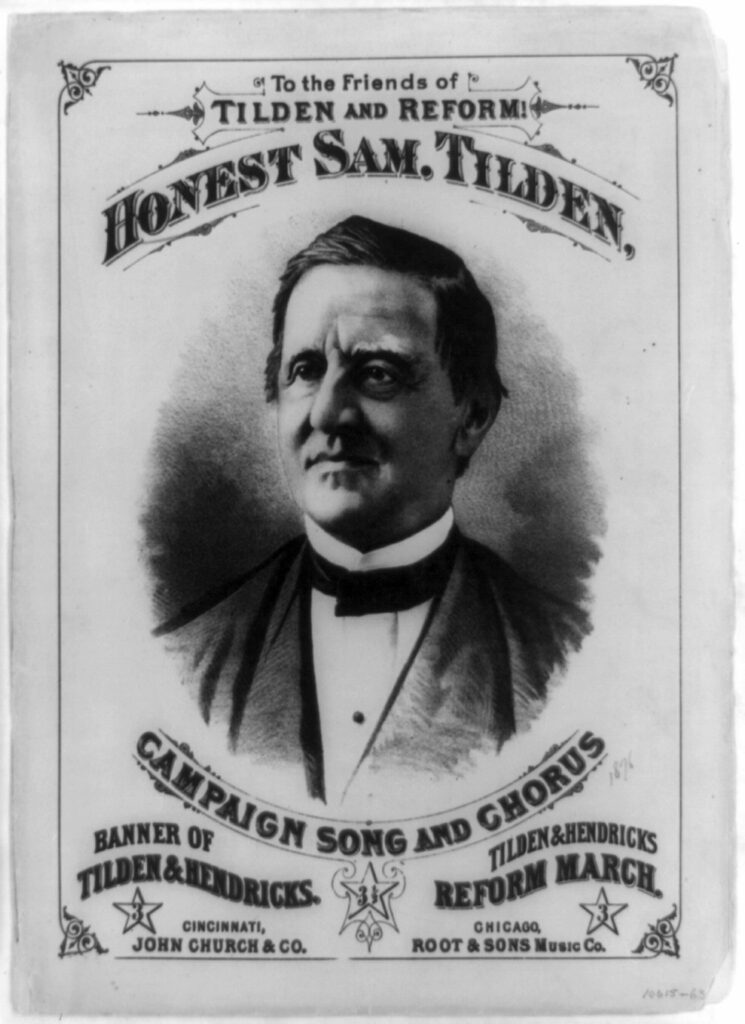
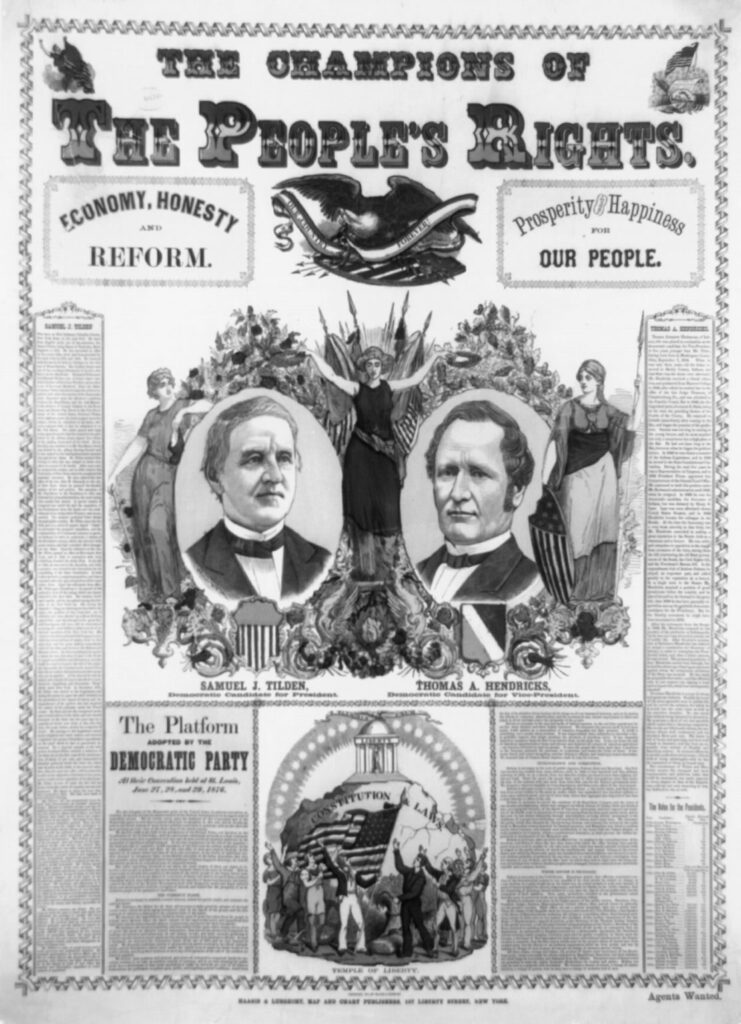
The Gramercy Park home of Samuel Tilden:
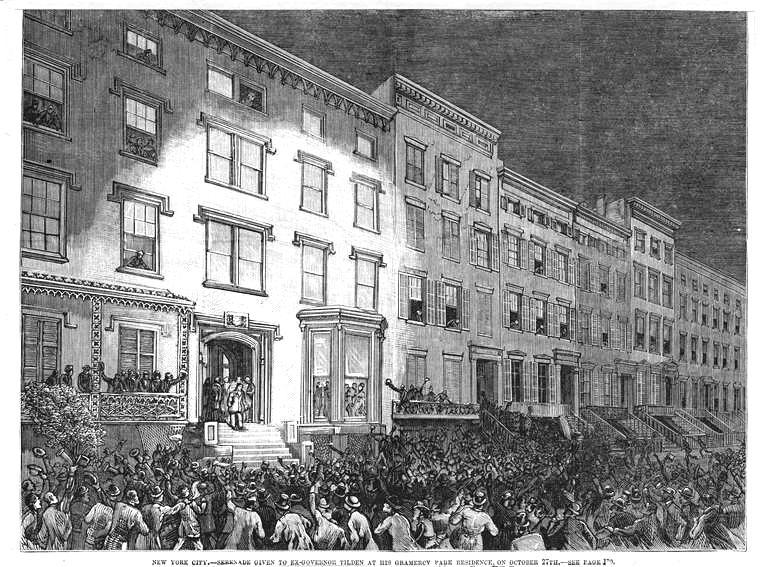
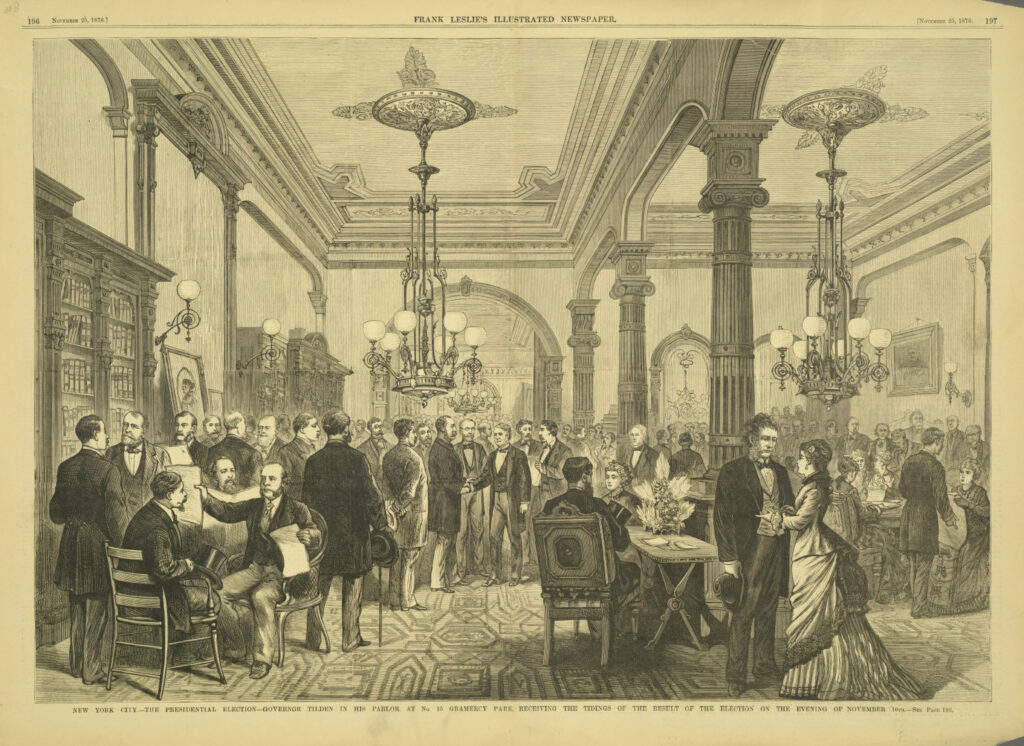
The Fifth Avenue Hotel
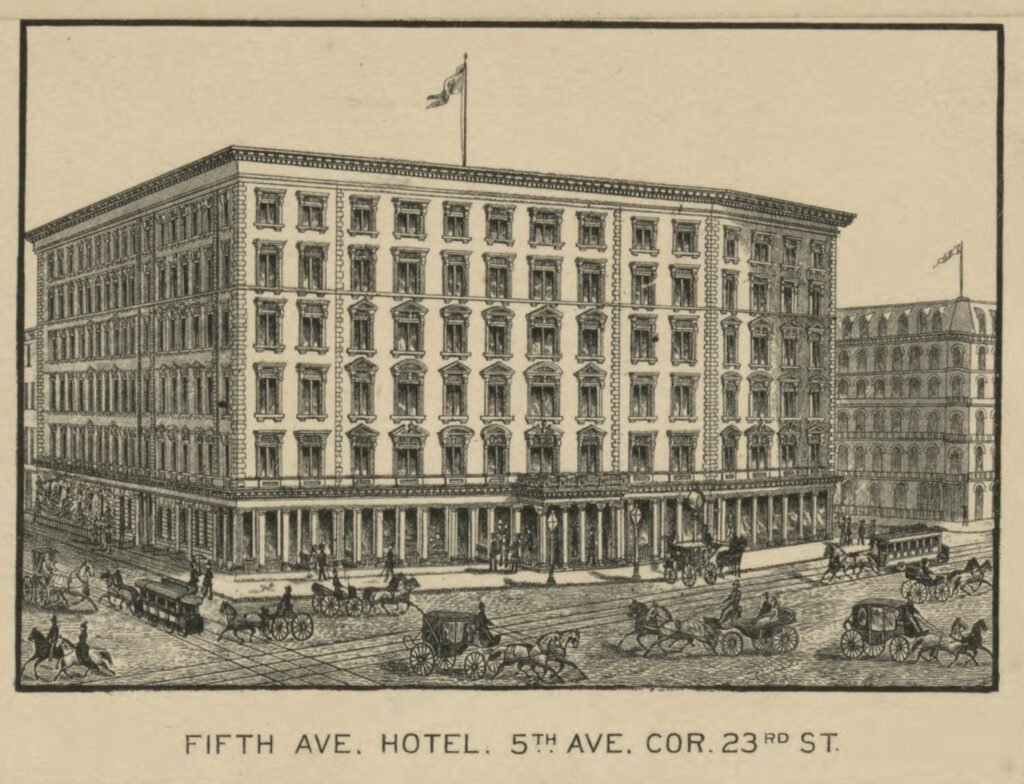
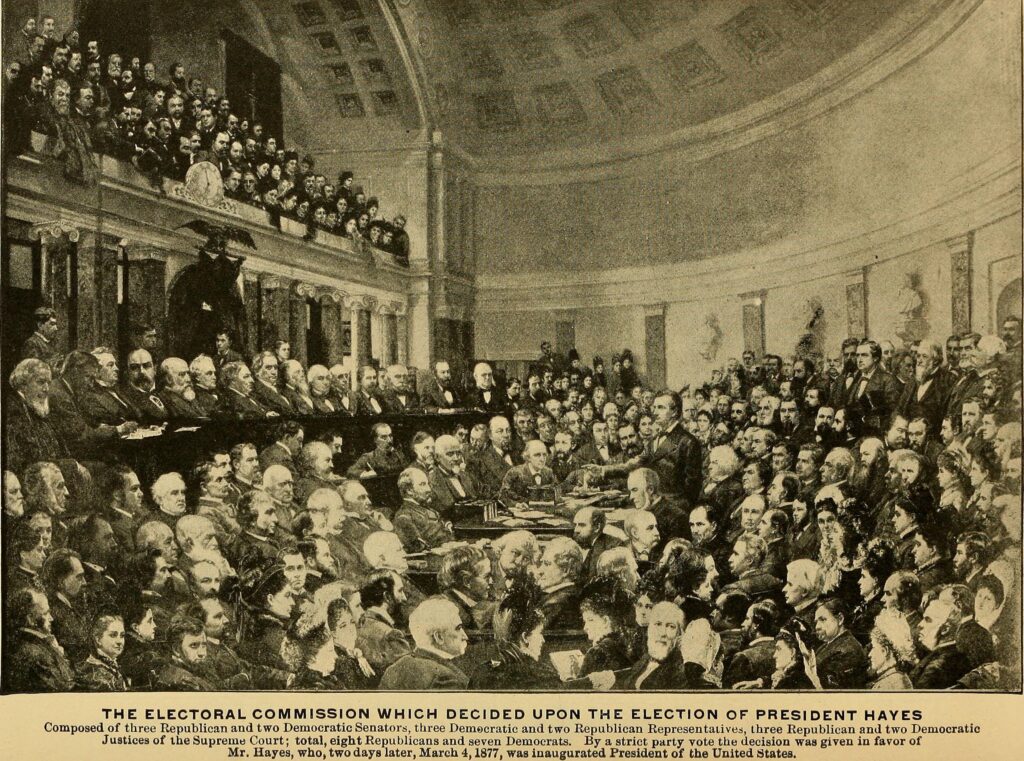
Want to see the Samuel Tilden’s house yourself?Check out the National Arts Club Community Day
on Saturday, Sep 24, 2022, 10 a.m. – 2 p.m.
Inside the National Arts Club
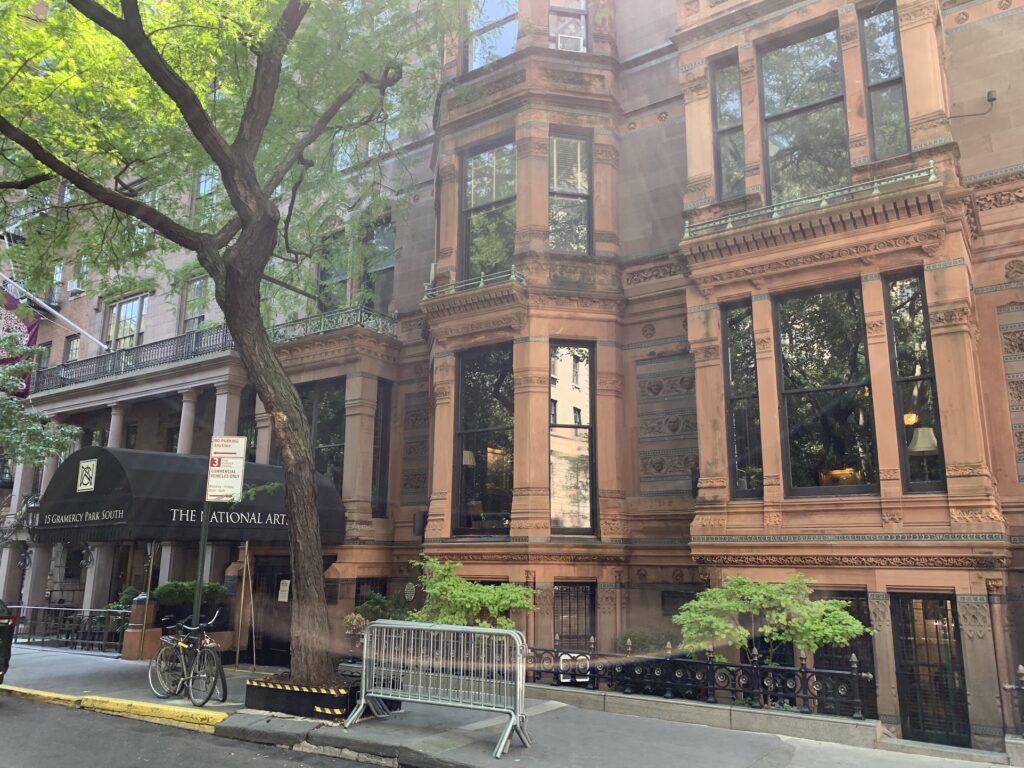
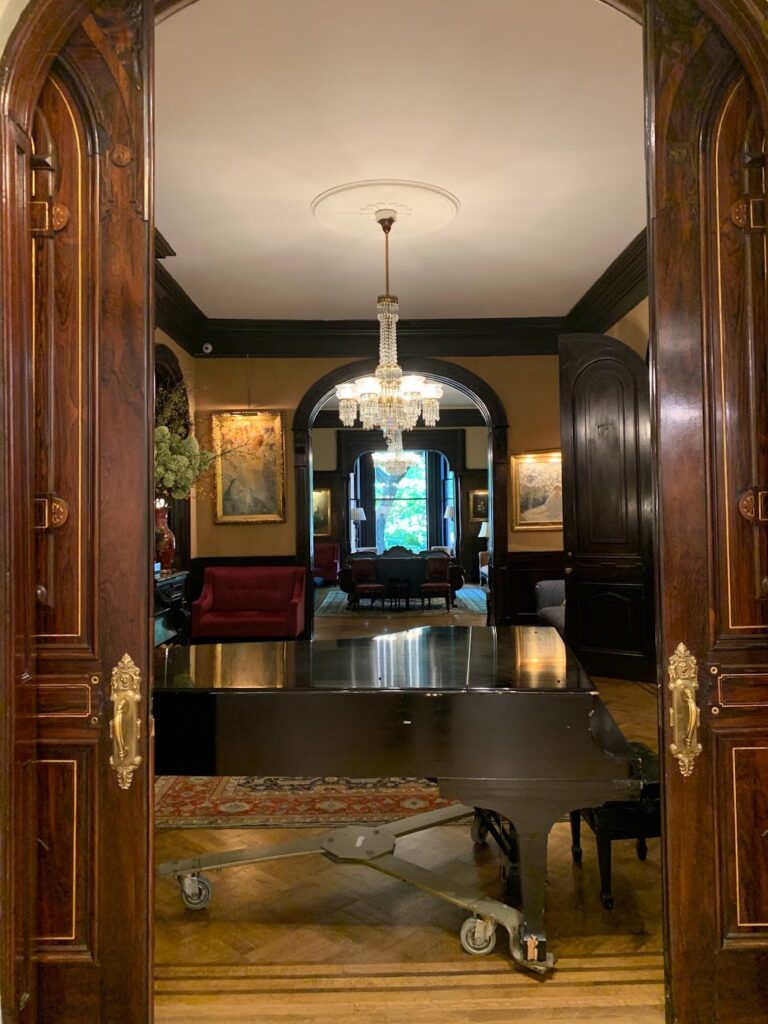
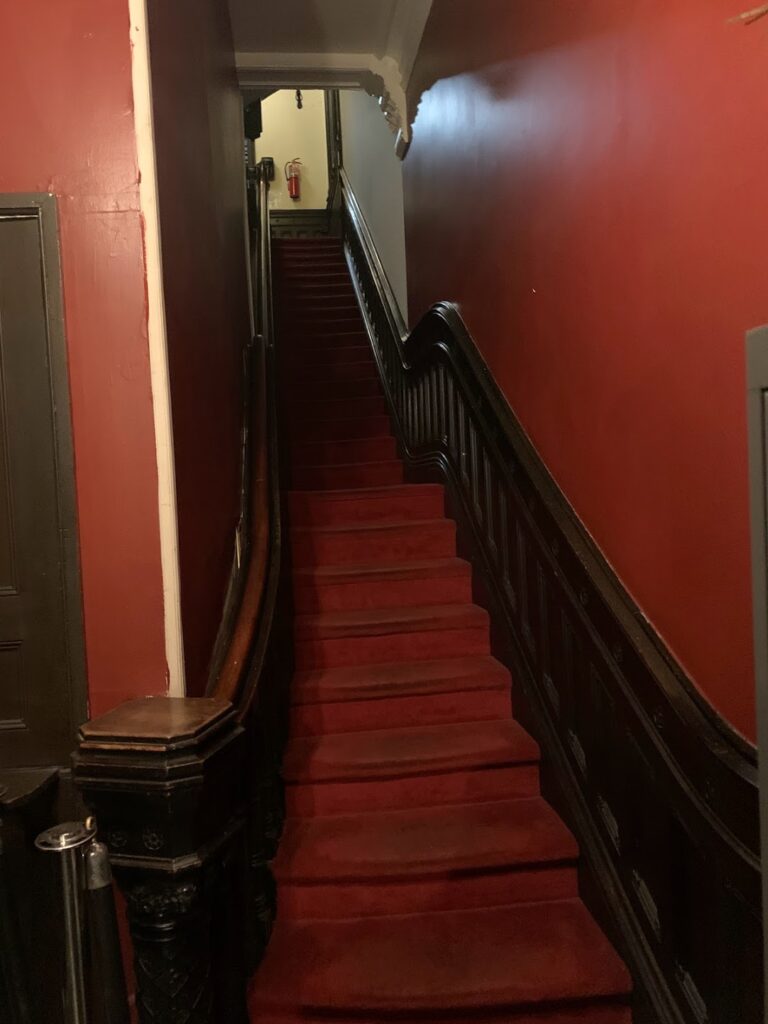
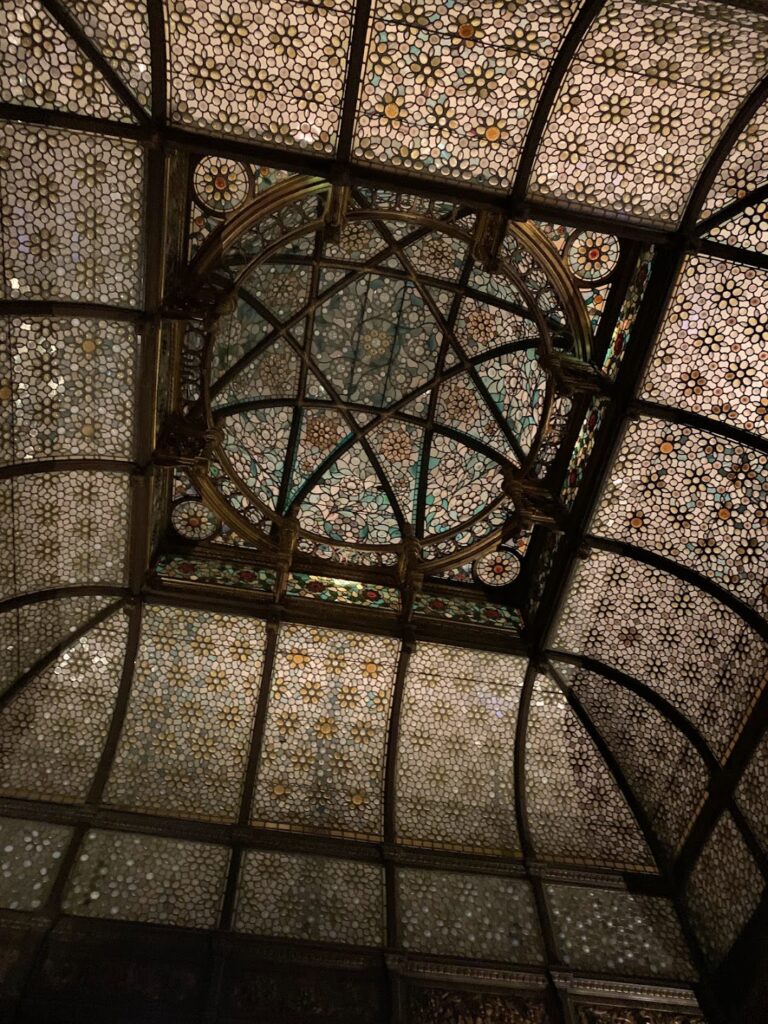
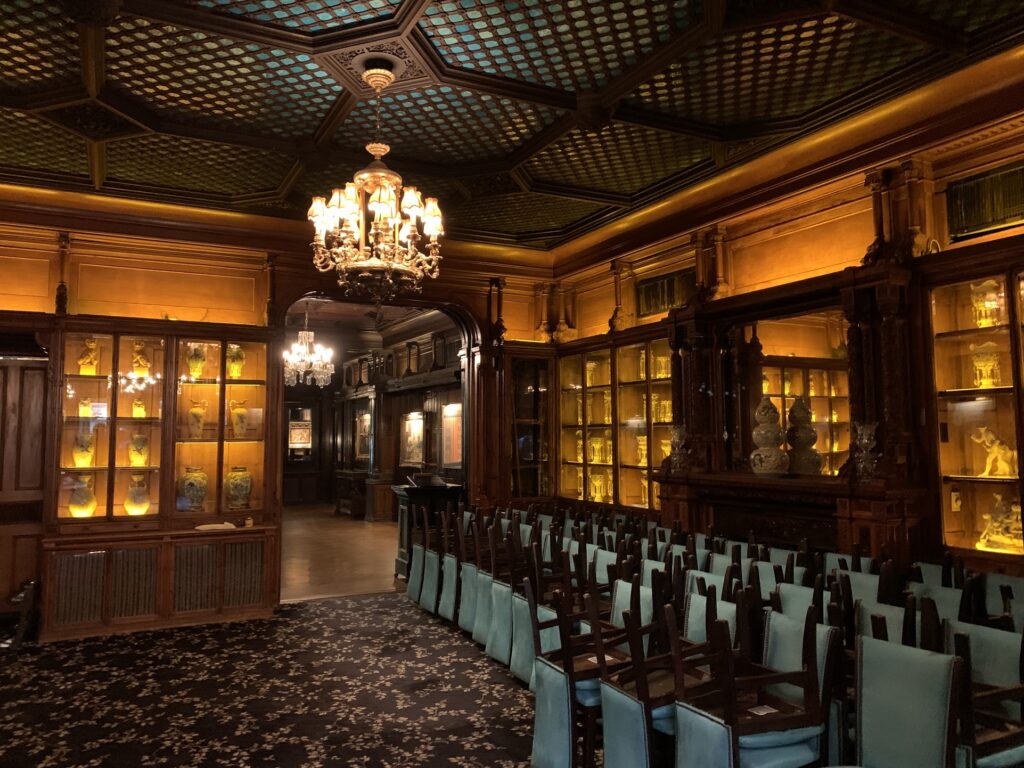
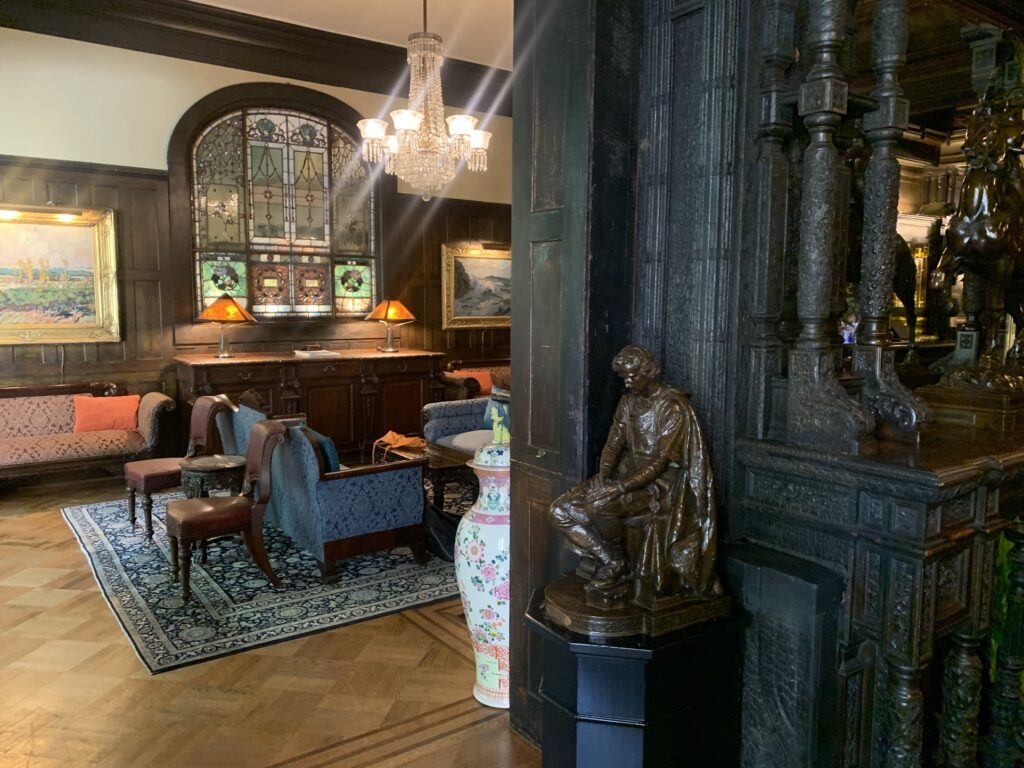
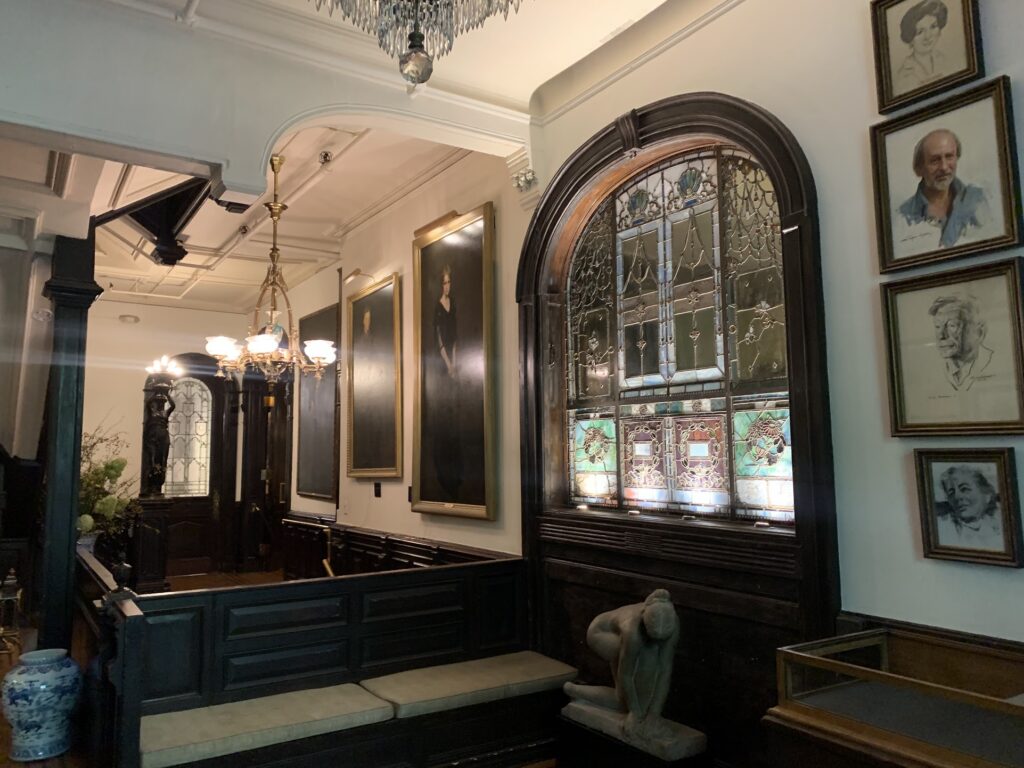
Other Bowery Boys website articles you might find interesting:
The Fifth Avenue Hotel: Opulence, glamour and power on Madison Square
Insanity: Congressman Daniel Sickles shot and killed the son of Francis Scott Key
Election Night 1916: With a world war looming, America goes to the polls
How to win a New York election, in six easy, illegal steps
RECOMMENDED LISTENING
We also recommend HIST 119: The Civil War and Reconstruction Era, 1845-1877 with David W. Blight
RECOMMENDED READING
By One Vote: The Disputed Presidential Election of 1876 by Michael Fitzgibbon Holt
Centennial Crisis: The Disputed Election of 1876 by William Rehnquist
Contesting Commemoration: The 1876 Centennial, Independence Day, and the Reconstruction-Era South by Jack Noe
Fraud of the Century by Roy Morris Jr.
The Republic for Which It Stands – The United States during Reconstruction and the Gilded Age, 1865-1896 by Richard White
Rutherford B. Hayes by Hans L. Trefousse

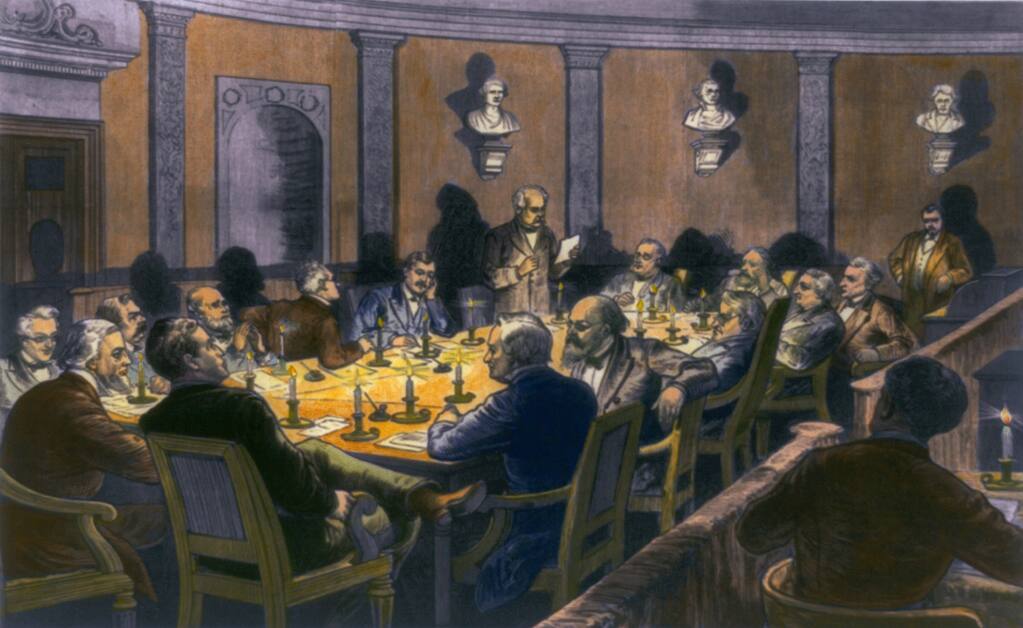
2 replies on “National Calamity: Samuel Tilden and the Presidential Election of 1876”
I was just on a walk through Greenpoint and passed by 137 Oak Street, a curious spooky building which has had Halloween decorations since August and definitely gives off haunted vibes (same lights are on every single night, there’s a light up
Ghostface mask in one of the windows, and the for the first time ever I saw a person walk by in one of the windows).
I looked it up online and discovered that the land belonged to Tilden at some point in time. I was curious to see if you had done an episode about that building so I went to your website only to be met with an article about your most recent episode about Tilden. Creepy.
Correction: The Electoral College does not meet in Washington, DC. Electors from each state meet in their respective state capitols. The votes are counted in a special joint congressional session in Washington, at which the vice president (as president of the senate) presides. See Article II, Section I.